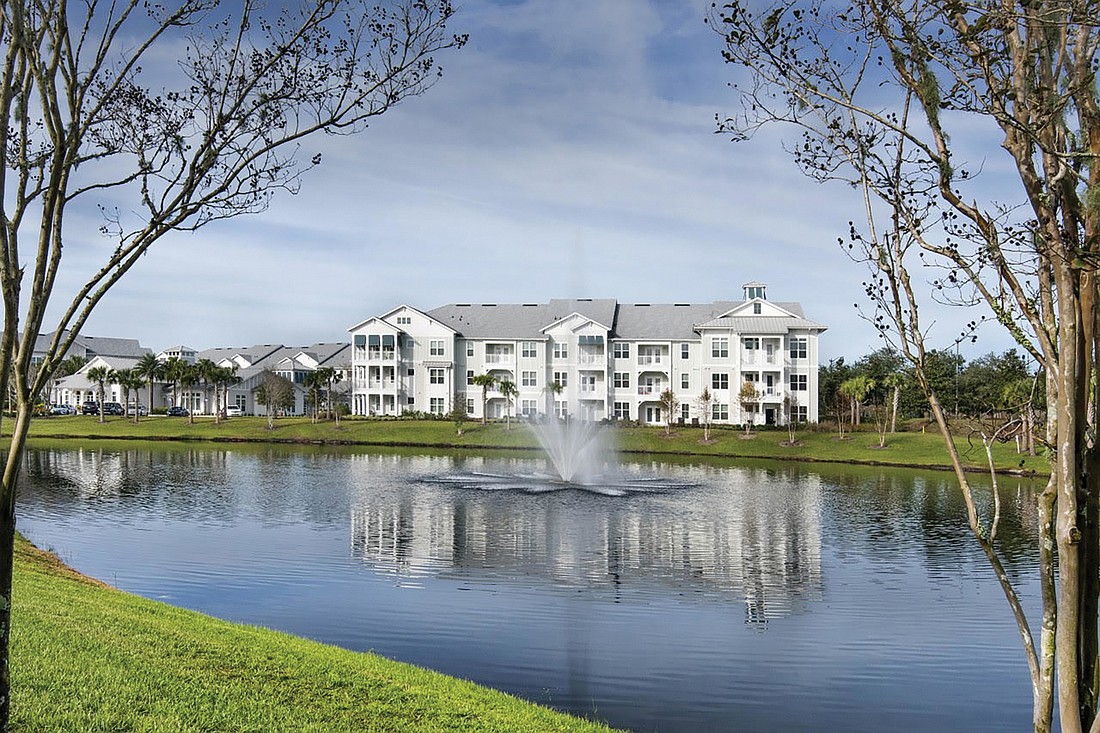
The coronavirus is affecting all aspects of the multifamily sector in Northeast Florida, said Matt McCarthy and Bradley Coe with Colliers International’s multifamily investment sector.
McCarthy expects over the short term “to see zero to negative rent growth, dropping occupancy levels, lower lease renewal rates, higher levels of bad debt and delinquency and a greater level of concessions.”
He said developers of projects under construction are experiencing labor and material shortages and delays along with longer wait times for building inspections. Construction schedule extensions are driving up the cost of development.
“The situation is impacting everyone a little differently depending on their location, how they source debt and equity, their overall investment strategy” and other factors, Coe said.
“Most are taking a wait-and-see attitude while others have moved to the sideline for the time being,” he said.
Coe said buyers and sellers with agreements for transactions are showing a greater level of cooperation to “keep deals in the pipeline” while assessing impacts of the virus.
However, a large “percentage of pending transactions for existing assets have been delayed, dropped or repriced,” he said.
Repricing is successful when sellers are motivated by liquidity, he said.
McCarthy said multifamily property values have changed based upon the “significant change in economic conditions and investor/consumer confidence.”
Investment groups determine asset value by the cost of debt and equity along with potential income growth and expense management.
Investors will need to adjust the financial outlook by considering rent growth, reduced occupancy and renewal rates, increased bad debt and delinquency, and concessions to attract occupants, they said.
“Those adjustments to the underwriting model will in effect drive down values and simultaneously increase the acquisition cap rates,” he said.
The acquisition cap rate is the ratio of net operating income to property asset value.
The impact to value depends on how long the pandemic lasts, virus containment, economic conditions and impacts to employment, they said.
But because the multifamily sector has historically been a safe asset class during recessions, Coe said he would not be surprised to see more investors.
He said a recent survey by Institutional Investment Advisors, a commercial real estate advisory and research company, shows 96% of the largest multifamily owners and developers in the United States believe the virus will not stop investor demand over the long term.
McCarthy said the economic consequences of the pandemic will create different impacts.
Traditionally, Class A multifamily properties, defined as those developed within the past 10 years, are considered the most vulnerable asset class susceptible to reduced demand, he said.
Renters are more likely to bypass premier locations to save money. Older properties in Classes B or C have the advantage of higher demand and less supply due to consistent occupancy levels near 95%.
However, residents in those classes generally are those working in industries most affected by the pandemic, such as retail and service workers. Even with the current moratorium on evictions, renters who lose their jobs may need to find alternative accommodations.
The new government relief bill is designed to help stabilize the multifamily sector by helping tenants to stay in housing.
New construction may need to offer more concessions and adjust rent levels to lease up the new units, McCarthy said.
Multifamily developers with projects under construction “are doing their best to keep deals moving forward through the process,” with construction schedules extended to account for delays associated with the virus, Coe said.
Coe said multifamily investors are finding banks are more selective when funding new developments or backing the purchase of existing properties. Life insurance companies and commercial mortgage-backed securities are not providing funds, he said.
Government-sponsored Fannie Mae and Freddie Mac are still doing business on conventional multifamily financing. But they are focused on stronger properties and those that are at least 93% leased, Coe said.
Fannie Mae and Freddie Mac purchase and guarantee mortgages through the secondary mortgage market.
Coe said that investors in the value-add multifamily market are being negatively impacted by more cautious lenders on new deals and refinancing existing properties.
Fannie and Freddie issued guidelines to lenders that require borrowers to suspend evictions that are impacted by COVID-19 and tenants can pay delinquencies over a long term. Residents also can waive three months rent after April 1 and can pay that amount over a 12-month period, Coe said.